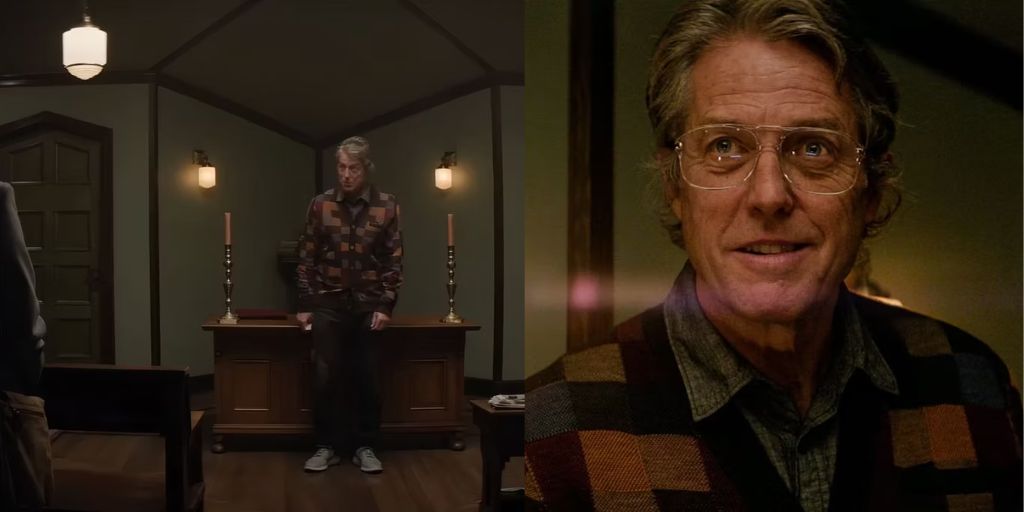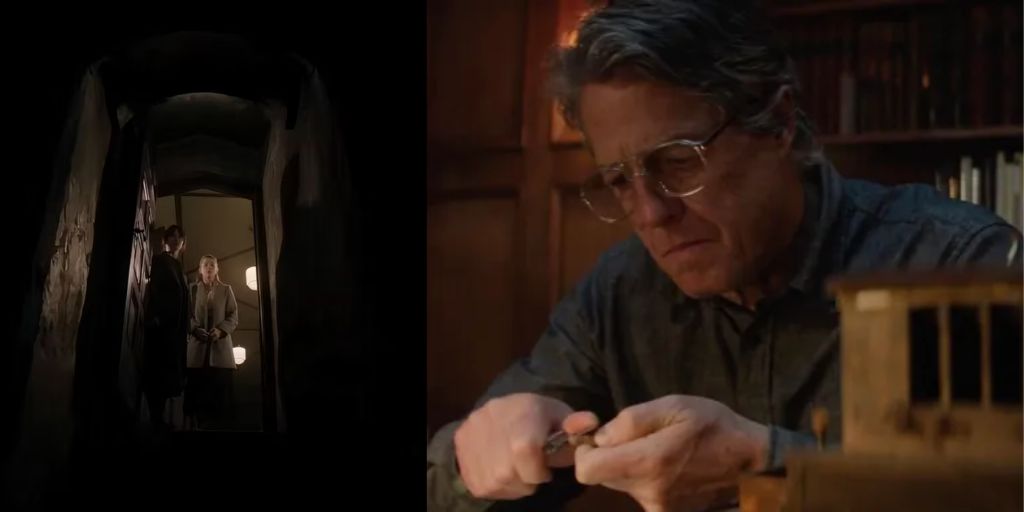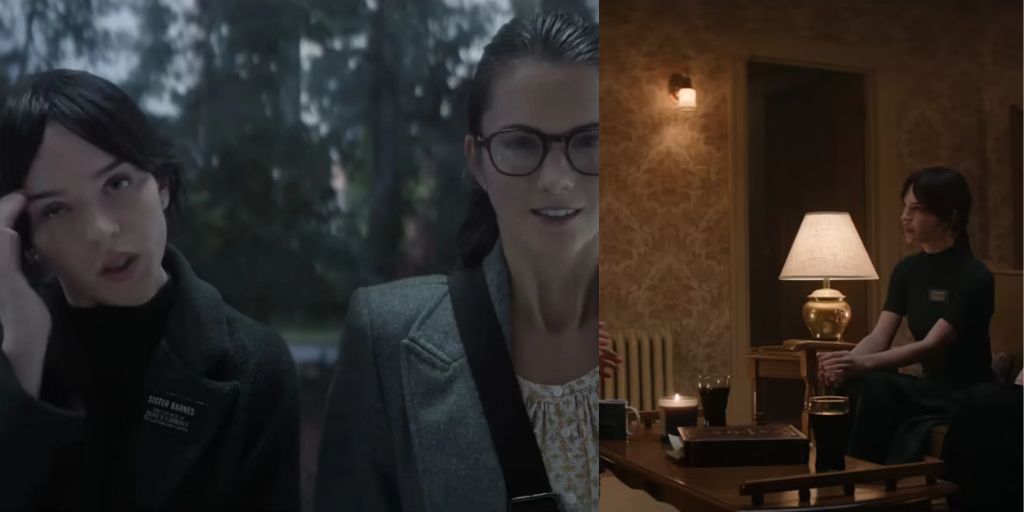When it comes to religious horror films, most stick to familiar themes. These films often feature demon possession, evil antichrist babies, and the devil influencing actions. However, few films address the actual fear of having faith in a religion, the uncertainty of believing in something possibly false, or the inner struggle of a crisis of faith.
“Heretic,” the latest film by Scott Beck and Bryan Woods, stands out by focusing more on religious aspects than traditional horror. This approach makes it unique within the genre.
Sophie Thatcher and Chloe East play Sister Barnes and Sister Paxton, two missionaries from The Church of Jesus Christ of Latter-day Saints. They are trying to share their faith with others but have had little success. They receive an invitation from Mr. Reed (Hugh Grant), who wants to learn more about their religion. The two missionaries go to his house to discuss their beliefs.
Mr. Reed seems interested in their message. He welcomes them into his home, introduces them to his wife, who is baking a blueberry pie, and talks about his search for the true religion. However, once Mr. Reed leaves them alone, the two women begin to question their presence there.
They find no sign of Mrs. Reed, discover they are locked in the house, and realize that Mr. Reed seems to know more about their religion than they do. As they search for a way out, they must confront their faith and decide if they will leave with the same beliefs they had when they arrived.
Beck and Woods choose to focus on the religious questions in “Heretic” rather than on horror elements. At times, the film can feel like a basic introduction to religious issues, but it effectively addresses the hypocrisies within strict beliefs.

The film seems more interested in challenging those with narrow viewpoints on “one true religion” rather than using jump scares or gruesome imagery. Beck and Woods also critique organized religion and those who believe they hold ultimate truths that others cannot understand. Mr. Reed presents his views from a position of authority, making it clear that he feels Barnes and Paxton cannot understand his perspective, though his own beliefs have flaws.
Hugh Grant, as Mr. Reed, gives a dynamic and unusual performance. He has recently excelled in villainous roles in “Paddington 2” and “Dungeons & Dragons: Honor Among Thieves,” and his role in “Heretic” is a strong addition. The film knows that with Grant’s talent, it just needs to let him perform.
Grant enjoys tearing down the beliefs of the two missionaries, pointing out logical flaws, and engaging in a lively dialogue about faith. The film shines when Grant delivers long monologues, uses Monopoly as a metaphor for religion, sings Radiohead songs, and does a Jar Jar Binks impression. This role showcases everything one would want from a villainous Grant performance.
Thatcher and East provide a good balance to Grant’s performance. Thatcher’s Sister Barnes joined the church later, while East’s Sister Paxton is more deeply invested in what she has learned. Thatcher effectively counters Grant’s criticisms, while East’s character shows an interesting development. The film initially focuses on Sister Barnes, but as it progresses, East’s character becomes more surprising and interesting in how she maintains her belief.
Unfortunately, as the film continues into Mr. Reed’s house, the narrative begins to weaken. Initially, “Heretic” centers on a conflict of faith, with Grant’s performance and the film’s direction being effective. However, as the film delves deeper into the house, it becomes less compelling.
Grant’s role diminishes, and the screenplay begins to find more concrete answers and possible miracles. What started as a thought-provoking discussion shifts to less engaging ideas and presentations of faith. The film’s appearance also loses some appeal, as the warm, welcoming feel of Mr. Reed’s home turns into dark, barely lit rooms. Cinematographer Chung Chung-hoon films these later scenes like a typical horror movie, which diminishes the story’s impact.

“Heretic” offers a clever twist on religious horror with strong performances, especially from Grant. Although the film loses some of its impact in the final third, Beck and Woods’ approach to the genre is refreshing, finding the hypocrisies of organized religion in a way that is rare in mainstream cinema. And yes, Grant’s Jar Jar Binks impression is a highlight.
In the end, “Heretic” presents a thought-provoking look at the complexities of faith and belief. It stands apart from traditional religious horror by focusing on the tension between doubt and faith, rather than relying solely on jump scares or supernatural elements.
Beck and Woods have crafted a film that challenges viewers to think about the nature of belief, the contradictions in organized religion, and the dangers of rigid thinking. The film shines in its early moments, particularly with Hugh Grant’s impressive performance as Mr. Reed, where his eccentric and charismatic character steals the show. His dialogue, full of witty observations and sharp criticisms, highlights the film’s exploration of faith in a unique and entertaining way.
However, as “Heretic” transitions into more standard horror territory, it loses some of its initial appeal. The deeper the narrative ventures into Mr. Reed’s house, the more it becomes a typical horror film, leaving behind the intriguing discussions about religion and faith that made it stand out in the first place.
Despite its weaker final act, “Heretic” is a refreshing addition to the religious horror genre. It raises questions that go beyond the usual scares, and its willingness to tackle these issues makes it worth watching for those seeking a different kind of horror experience.




